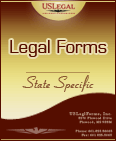Basic Software License Agreement

Computer hardware, being part of a machine, can only understand two basic concepts: on and off. The on and off concept is called binary. Computer software was developed in order to make binary into a useful way to tell the computer hardware what to do. Computer software translates concepts and directions that people can understand into something that can actually be done on the computer hardware.
Computer software is most commonly created by computer programmers using a programming language. The programmer writes commands in the programming language that are similar to what someone might use in everyday speech. These commands are called source code. Another computer program called a compiler is then used on the source code, transforming the commands into a language that the computer can understand. The result is an executable computer program, which is another name for software.
Computer software falls into two primary categories: system software and application software. System software represents programs that allow the hardware to run properly. Application software represents programs that allow users to do something besides simply run the hardware. Some experts also include a third category, programming software, though others put those programs into one of the other previously mentioned categories.
A license agreement is a legal contract between two parties, known as the licensor and the licensee. In a typical licensing agreement, the licensor grants the licensee the right to produce and sell goods, apply a brand name or trademark, or use patented technology owned by the licensor. In exchange, the licensee usually submits to a series of conditions regarding the use of the licensor's property and agrees to make payments known as royalties.
(more...)
Download: Basic Software License Agreement
Available from: USLegalForms.com
SKU: US-02648BG
NOTICE: The information and links contained on this web page are intended only to be merely informative and are NOT intended to provide legal advice to any person/entity. Consult with and seek the advice of a qualified lawyer. E.&O.E. Click here for important legal disclaimer.

